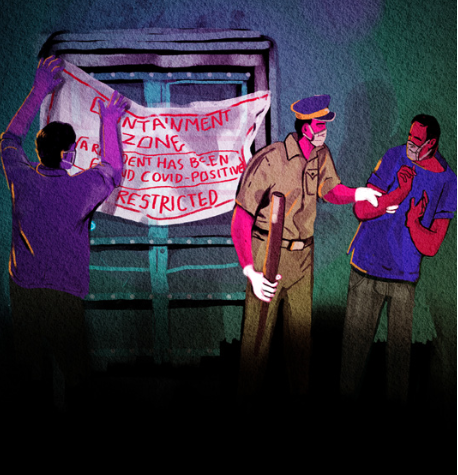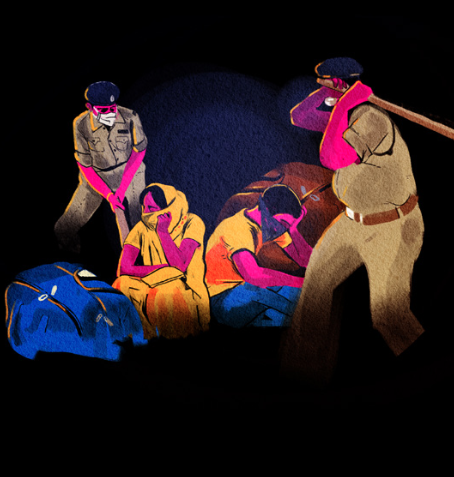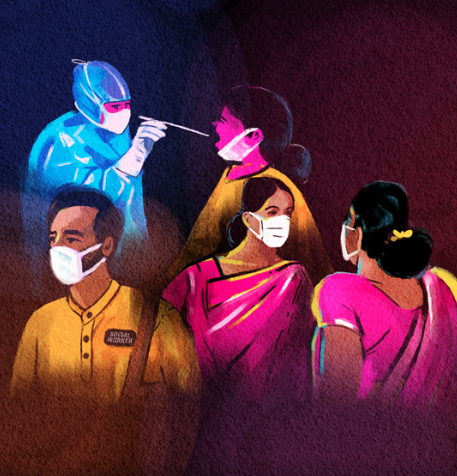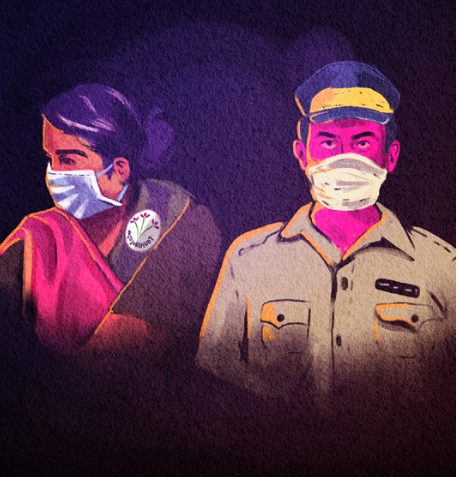Lived experiences of surveillance at the margins during COVID-19 in India
Page 9 Nikita Sonavane and Ameya Bokil
Criminal Justice and Accountability Project

“Surveillance also seems antithetical to the idea of care in itself… Especially through the system of policing… A lot of people have spoken about community policing and I think, it’s something they think that merges the two ideas of performing policing functions [and] instilling and imbibing the value of care. But… We don’t think that it’s something that can happen through the policing system at all.”

“Just the fact that we are also using the term policing implies that there is a certain amount of violence that is ingrained in that function and just generally the way that the policing in India is structured, a system that is systematically used to target marginalized communities…”

“I mean, of course, it’s easier to build that relationship of trust with the state or any kind of state machinery that is operating or that is rooted in the ethos of social welfare. And that is something that Kerala has done… I think because they are not looking at the police as this… stop-gap arrangement and there is that… separation of roles which also allows for things to function better.”

“Because, if the same body that is required to maintain “law and order” and discharge all other functions in the roles of healthcare, service providers, social workers, so on and so forth, then there are bound to be problems.”